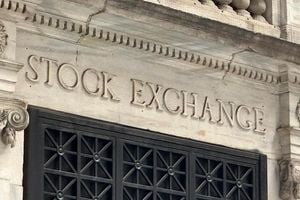The baby boomer generation, which comprises about 73 million individuals aged 60 to 78, is becoming increasingly relevant to the economy, particularly as they transition out of the workforce. This demographic shift, often referred to as the "silver tsunami," is viewed by some as both a crisis and opportunity for various sectors, including healthcare and housing.
According to Bank of America, beauty spending growth is being led not by the younger generations typically associated with self-care trends but rather by baby boomers. "When itcomes to beauty spending growth, one generation rises far above the rest," the report stated. This highlights how this demographic's spending habits are shifting, indicating their increasing relevance and influence within markets traditionally dominated by millennials.
Meanwhile, the broader economic narrative is more complex. The baby boomers have been both credited and blamed for many of the systemic issues facing the current economy. Rising costs of living, inflation affecting basic necessities like eggs, and shrinking workforce numbers are often tied back to the economic policies and practices established during their peak earning years.
Cultural commentary suggests these sentiments are not unfounded. Analysts argue it is increasingly convenient to blame economic woes on the baby boomer generation. Their departures from the workforce are anticipated to result in significant shifts, as the Census Bureau predicts older adults will outnumber individuals under 18 by 2035, potentially exacerbated by their retirements.
The concept of the "silver tsunami" has garnered mixed reactions. While it offers investors insights on potential markets to capitalize on, such as long-term care facilities and needed health industry drugs, it has also faced criticism. An internal publication from the Institute for Public Health at Washington University described the term as "fatalistic and negative," advocating for its avoidance. Despite these concerns, the term continues to appear frequently across business forecasts and assessments of social trends.
Potential economic effects of this shift are varied. On one hand, the conclusion drawn by some investors is bleak, predicting declines due to aging homeowners choosing to downsize and vacate their long-standing residences. On the other hand, some analysts argue housing prices may actually rise as older Americans choose to remain where they are, driven by nostalgia and financial feasibility.
Market experts maintain vigilance against simply categorizing the retiring baby boomer generation’s impacts as strictly negative or positive. Instead of foreseeing doom from the demographic changes, they suggest focusing on adaptations these shifts will necessitate within businesses and institutions. A particularly notable shift is the urgency for businesses to adapt to the wants and needs of older customers, which companies are beginning to recognize as the sector shifts their way.
For aspiring investors or businesses, recognizing the potential of the silver tsunami isn't just about addressing impending retirements but tapping the existing strengths of this aging demographic. Companies are increasingly interested in fulfilling the self-care and amenities they seek, drawing from the boomers' substantial spending habits.
Still, numerous economic facets remain complex, layered with sociopolitical factors impacting today's economy. The looming problems such as housing shortages, high healthcare costs, and extensive student debt create pressure on younger generations who feel squeezed by the legacy policies of the baby boomers.
Even as younger generations question their economic fate compared to the supposed advantages enjoyed by their forebears, the average baby boomer today is grappling with their legacy. Not only does this generation face the financial pressures of retirement, but they also balance the critiques about their decisions on fiscal policies and societal development from which younger cohorts have emerged.
The conversation surrounding baby boomers cannot solely focus on nostalgia but must also acknowledge their pivotal role is likely to shape future economic conditions as they permanently leave the workforce. While the future poses uncertainties, businesses are called upon to embrace and integrate baby boomers as meaningful contributors to the economy.
Understanding the financial habits, aspirations, and overall health needs of the baby boomer population will increasingly dictate market behaviors going forward. Some firms, wisely attuned to these changes, are already positioning themselves to welcome and support the aging populace, reflecting how economic tides can be navigated successfully.
Hence, as the term "silver tsunami" dances across public discourse, invoking both fear and opportunity, the focus must be on preparing for the eventual realignment of priorities as boomers continue to chart new waters.
The reality is there is much to learn from this generation—not just about their handling of the past, but how their behaviors and assumptions could trailblaze solutions to existing and new economic challenges.



